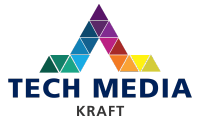Are you considering a career change from a non-tech background to the fascinating field of Generative AI? It may appear to be a frightening jump, but with effort and the appropriate technique, you can make the shift successfully.
Here are ten actionable steps to guide you on your journey:
1# Get the Basics Right
Begin with developing a strong foundation in artificial intelligence and machine learning. To learn the essentials, enroll in online classes, read books, and watch tutorial videos. Understand fundamental topics including neural networks, data preparation, and model assessment to establish a solid foundation for your journey into Generative AI.
2# Master Programming Languages
Become proficient in programming languages such as Python and TensorFlow. Understanding coding and AI frameworks is important to succeed in this area. To improve your problem-solving skills and optimize your workflow, practice creating clear, efficient code and being familiar with libraries and tools typically used in AI development.
3# Focus on Generative AI
Direct your efforts toward mastering the intricacies of Generative AI, including techniques like GANs, VAEs, and reinforcement learning. Explore research papers and online resources to deepen your understanding. Experiment with different architectures and algorithms to gain hands-on experience and develop your intuition for creating novel and impactful AI models.
4# Showcase Your Skills
Develop a portfolio of projects showcasing your Generative AI expertise, documenting your process, achievements, and methodologies to showcase your creativity and problem-solving skills.
5# Network and Collaborate
Engage with online communities and forums dedicated to AI and generative modeling. Connecting with experts can provide valuable insights and potential collaboration opportunities. Participate in hackathons, meetups, and conferences to expand your network and learn from industry professionals. Collaborating on projects with peers allows you to leverage diverse perspectives and accelerate your learning.
6# Consider Advanced Education
If necessary, pursue formal education such as a master’s degree or specialized certification in AI. Advanced learning can provide in-depth knowledge and enhance your career prospects. Look for programs that offer hands-on experience and opportunities for research or internships to gain practical skills and industry exposure.
7# Stay Informed
Stay updated on Generative AI trends by reading industry blogs, attending conferences, participating in online discussions, following researchers, and actively engaging with the AI community by sharing insights and contributing to discussions.
8# Seek Mentorship
Seek mentors in Generative AI for career guidance and support. Proactively seek advice from professionals through professional networks or mentorship programs, gaining technical and moral support to accelerate progress.
9# Persistence Pays Off
Transitioning to Generative AI requires patience, commitment, and resilience. Celebrate successes, learn from setbacks, and cultivate a growth mindset to progress towards goals.
10# Apply for Opportunities
Apply for entry-level positions or internships in Generative AI with a tailored resume, portfolio, and network. Show passion and commitment to the field, leveraging rejections as valuable learning experiences. Be proactive in seeking opportunities.
Starting a career in this field is a fascinating venture with many prospects for advancement and creativity. With focus, patience, and a smart approach, you may effectively transition from a non-tech background to a rewarding job in this exciting area. So, take the first step today and start your road to being a Generative AI specialist!

